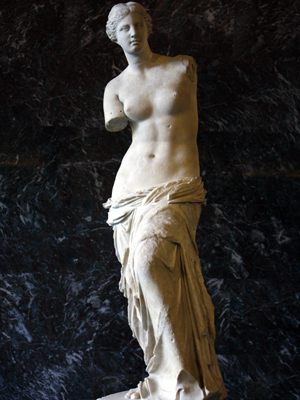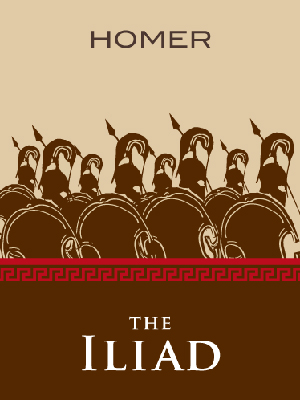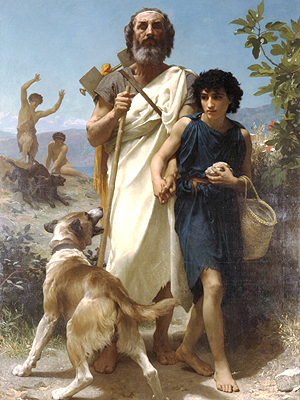Immutable narratives
Preamble: Ancient Greek Mythology
Some time around 1200 BC.
In celebration of the marriage of Peleus and Thetis, Zeus, overlord of the Greek Pantheon, hosts a banquet on Mount Olympus. Every deity and demi-god has been invited—except Eris, Goddess of Discord. No one wants a troublemaker at a wedding.
Unbidden but undaunted, Eris nevertheless presents herself at the wedding-feast, in her hand a golden apple which she tosses amongst the guests…. And, just as quickly, she departs, her eyes ablaze with looks that bode ill. Someone picks up the apple and announces the inscription it bears: “Kallìsti”.

At once, a squabble arises amongst the attendant goddesses. All are eager to claim the prize, but only three, indeed the most beautiful, prevail: Aphrodite, Athena and Hera. Their bickering finds no rest and, so, they turn to Zeus and ask him to choose one of them. Knowing that choosing any of them would bring him the hatred of the other two, Zeus wants no part in the decision. He thus appoints Paris, son of Priam, King of Troy, to select the most beautiful.
Escorted by Hermes, the three goddesses bathe in the spring of Mount Ida and then approach Paris as he herds his cattle. Having been given permission by Zeus to set any conditions he saw fit, Paris requires that the goddesses undress before him. The goddesses disrobe to show all their beauty. Yet, as all three are equally beautiful, Paris still cannot decide, and so the goddesses attempt to bribe him: Hera offers ownership of all of Europe and Asia; Athena offers skill in battle and great wisdom; and Aphrodite offers the love of the most beautiful woman on Earth, Helen of Sparta (aka Helen of Troy). Paris chooses Aphrodite and, therefore, Helen.
Aphrodite, however, neglects to mention that Helen is already married to King Menelaus of Sparta. And, although according to some accounts Helen falls in love with Paris and elopes very willingly with him, Paris has nevertheless to raid a royal palace in order to steal a queen.
Kardamili during ancient Greece
The village is first mentioned by the ancient Greek poet Homer in his epic The Iliad. Homer tells of how the area (then known as Cardamyle) was offered by Agamemnon, King of Mycenae (and leader of the Greeks in the legendary 10-year siege against the city of Troy), as an enticement to Achilles, who was instrumental in the victory of the famous war.
The year is 1183 BC and Paris, son of Priam, King of Troy, has eloped with Helen of Sparta. The beautiful Helen is married to Menelaus. Menelaus is King of Sparta, and his brother, Agamemnon, is King of Mycenae.
Helen is famous for her beauty throughout Achaea (ancient Greece). Many suitors of great ability have asked for her hand, but her father, Tyndareus, betrothes his beautiful daughter to Menelaus and makes them all promise to defend her honour nonetheless. When she disappears with Paris, Menelaus invokes this oath, and Helen’s other suitors—who between them represent the lion’s share of the country’s wealth, strength and military prowess—are obligated to help bring her back to Sparta, thus the whole of Greece moves against the Troy in force.
Agamemnon, King of Mycenae, persuades the great warrior Achilles to fight for him in the upcoming Trojan war:

“I have three daughters: take one of your choice, freely and without gifts of wooing. I will add such dower to boot as no man ever yet gave his daughter, and will give you seven well-established cities: Cardamyle, Enope, and Hire, where there is grass; holy Pherae and the rich meadows of Anthea; Aepea also, and the vine-clad slopes of Pedasus, all near the sea, and on the borders of sandy Pylos.”
At that time, Kardamili was the main port of the powerful ancient Greek city-state of Sparta; its acropolis or citadel was located on the steep hill that faces the sea just behind today’s village.
According to the ancient manuscript Description of Greece [Book 3, Chapter 26, Verse 7] written by the ancient geographer Pausanias, many temples and statues decorated the ancient polis, and there was a seaside shrine specifically dedicated to the fifty daughters of Nereus, the Nereides, who, according to Greek mythology, emerged from the sea to watch Pyrrhus, son of Achilles, passing through on his way to Sparta to wed Hermione, daughter of King Menelaus.
“Cardamyle, which is mentioned by Homer in the Gifts promised by Agamemnon, is subject to the Lacedaemonians of Sparta, having been separated from Messinia by the emperor Augustus. It is eight stades from the sea and sixty from Leuctra. Here not far from the beach is a precinct sacred to the daughters of Nereus. They say that they came up from the sea to this spot to see Pyrrhus the son of Achilles, when he was going to Sparta to wed Hermione. In the town is a sanctuary of Athena, and an Apollo Carneius according to the local Dorian custom.”
Local legend has it that the tombs of Castor and Pollux, twin brothers of the beautiful Helen of Troy, are today situated in Old Kardamili.
A little bit about Homer
To the Greeks of the classical period the Homeric poems represented not only a valid account of the past, but also defined and reflected the essentials of Greek life. The Greeks knew their Homer, and cited him on all occasions. Homer articulated Greek values—and did so with such success that they continue to define our own.

So what makes Homer so special…?
• He never openly condemns or judges; instead, he is a master at depicting both sides of a dilemma. He brings the listener to understand the delicate balance in decision-making, the conflicting emotions and interests of his characters.
• The characters themselves are not obviously good or evil; rather, his technique is to evoke empathy for both sides.
• Homer’s artistry is that he portrays the humanity of all his characters; he allows the listener to come to conclusions without overt-prompting. The overall effect of evoking empathy is that it encourages the listener to reflect on the human condition.
• This reflection is based not on divine revelation, but derives from the human intellect.